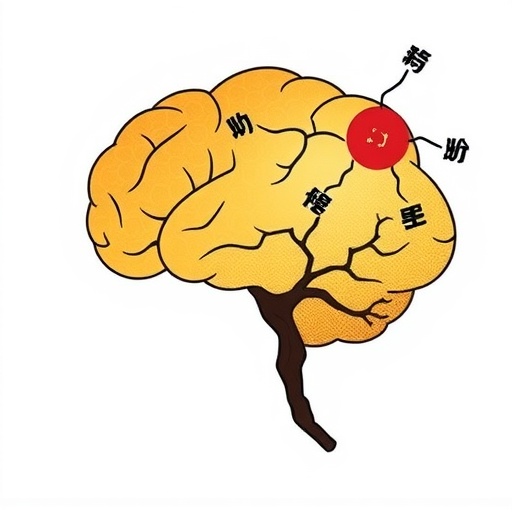In recent years, mental health has become an increasingly prevalent topic of discussion, particularly regarding the impacts of stress and psychological well-being among young adults. A recent study conducted by Zou and Zhang, published in Applied Research Quality of Life, sheds light on this important issue by exploring the intricate relationships between stressful life events, rumination, psychotic symptoms, and suicidal ideation among Chinese college students. This research is particularly crucial as the pressures of higher education often coincide with a peak in mental health challenges.
The study’s findings reveal that stressful life events significantly correlate with higher levels of rumination—an excessive focus on distressing thoughts and feelings. This tendency to ruminate is known to exacerbate mental health issues, creating a vicious cycle that can lead to heightened psychological distress. In a college environment, where academic pressures, social expectations, and life transitions converge, students may find themselves particularly vulnerable to this cycle.
Furthermore, the research highlights the role of psychotic symptoms in mediating the relationship between stressful life events and suicidal ideation. Psychotic symptoms, which may manifest as hallucinations, delusions, or severe mood swings, can severely impact a student’s ability to cope with stress. When combined with the already overwhelming experiences of college life, these symptoms can create an environment where suicidal thoughts proliferate.
The implications of Zou and Zhang’s findings are significant, not only for the academic community but also for mental health practitioners working with young adults. The recognition of rumination as a critical factor in the mental health of students suggests that interventions aimed at reducing reflective rumination could be beneficial. Cognitive-behavioral therapies, mindfulness practices, and stress reduction techniques are some strategies that can help mitigate these issues.
In addition to individual interventions, there is a pressing need for universities to foster environments that promote mental health awareness and resilience. Creating support systems, such as counseling services and peer support programs, can provide students with essential resources to handle the stressors associated with college life. Comprehensive mental health education can empower students to recognize their mental health needs and seek help when required.
Zou and Zhang’s study also opens up broader discussions about the nature of success and well-being in college. The competitive atmosphere can often lead students to prioritize grades and achievements over mental health, fostering an unhealthy mindset. Higher education institutions might benefit from re-evaluating their definitions of success, placing equal importance on mental and emotional well-being.
Moreover, understanding cultural contexts is crucial when examining mental health in diverse populations. The study focuses on Chinese college students, contributing valuable insights into how cultural factors affect mental health outcomes. Stressors may differ significantly across cultures, influenced by family expectations, societal pressure, and economic conditions. This research emphasizes the necessity for culturally sensitive approaches when addressing mental health issues.
As societal awareness of mental health grows, media representation plays a pivotal role in shaping public perception. Responsible reporting on mental health challenges can combat stigma and encourage individuals to seek help. The media has a responsibility to portray mental health issues authentically, breaking down misconceptions that often deter individuals from pursuing treatment.
The correlation between mental health and academic performance cannot be overlooked. Students grappling with emotional distress and psychological issues may struggle with concentration, motivation, and overall academic achievement. Therefore, it becomes essential for educational systems to integrate mental health resources into their frameworks, ensuring that students can thrive both academically and emotionally.
In conclusion, the findings presented by Zou and Zhang highlight a pressing need for swift action to address mental health issues among college students. By understanding the complex interplay between stress, rumination, psychotic symptoms, and suicidal ideation, stakeholders can develop targeted approaches to support at-risk populations. Addressing mental health in the college environment is not solely an academic concern; it is essential for cultivating healthier and more resilient future generations.
To ensure that these insights reach as many individuals as possible, advocacy for educational reforms and mental health awareness campaigns is paramount. Engaging students and the wider community in conversations about mental health can help destigmatize these vital discussions and foster an atmosphere of support and understanding.
By addressing the factors identified in the study, we can create a more holistic educational experience for students, one that nurtures both academic success and mental well-being. As we move forward, let us prioritize the mental health of our youth, paving the way for a more compassionate and understanding society.
Subject of Research: The relationship between stressful life events, rumination, psychotic symptoms, and suicidal ideation among Chinese college students.
Article Title: Association between Stressful Life events, rumination, Psychotic Symptoms and Suicidal Issue among Chinese College Students.
Article References:
Zou, H., Zhang, W. Association between Stressful Life events, rumination, Psychotic Symptoms and Suicidal Issue among Chinese College Students.
Applied Research Quality Life (2025). https://doi.org/10.1007/s11482-025-10520-3
Image Credits: AI Generated
DOI: https://doi.org/10.1007/s11482-025-10520-3
Keywords: Mental health, college students, stress, rumination, psychotic symptoms, suicidal ideation, cultural context, educational reform, counseling services.




